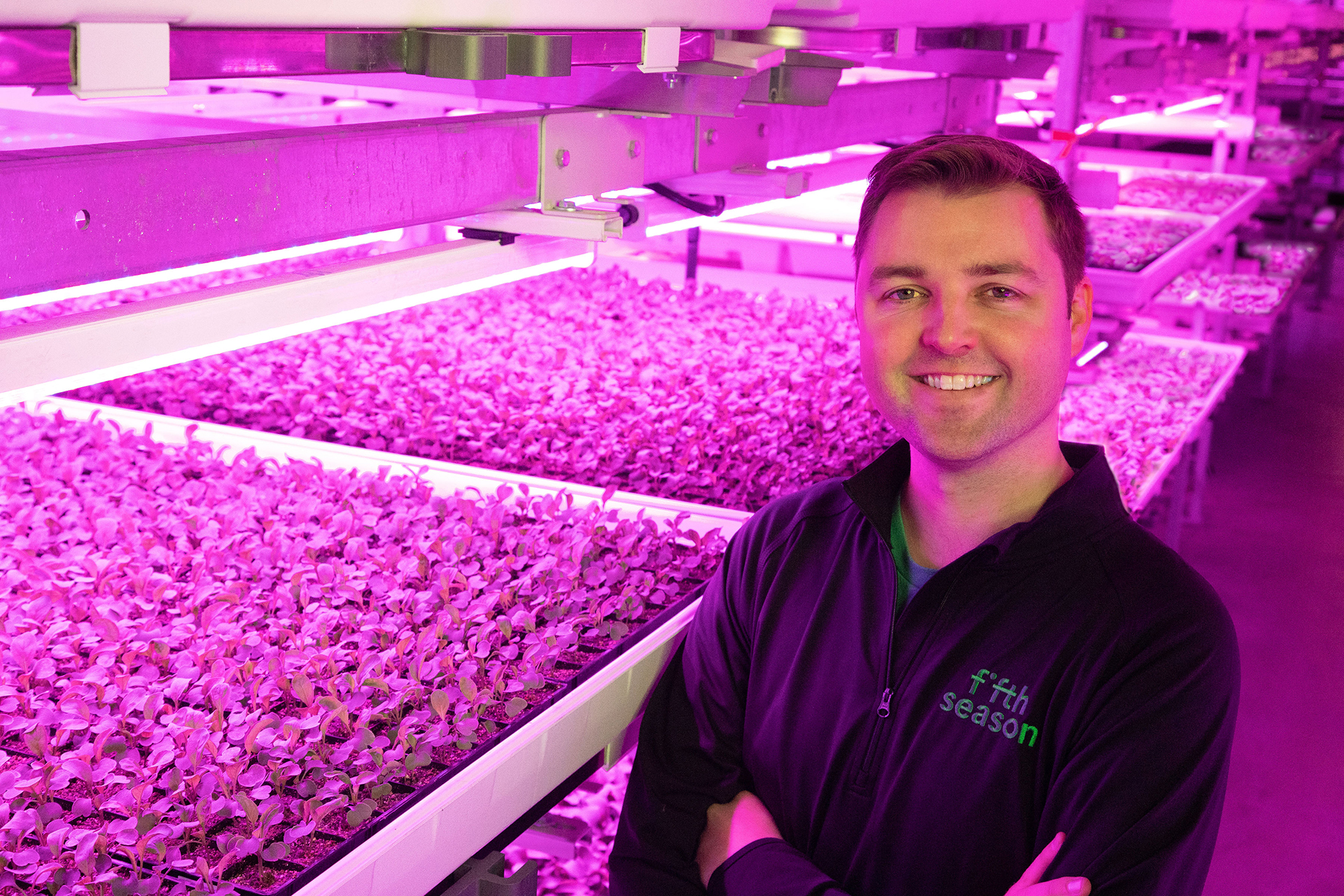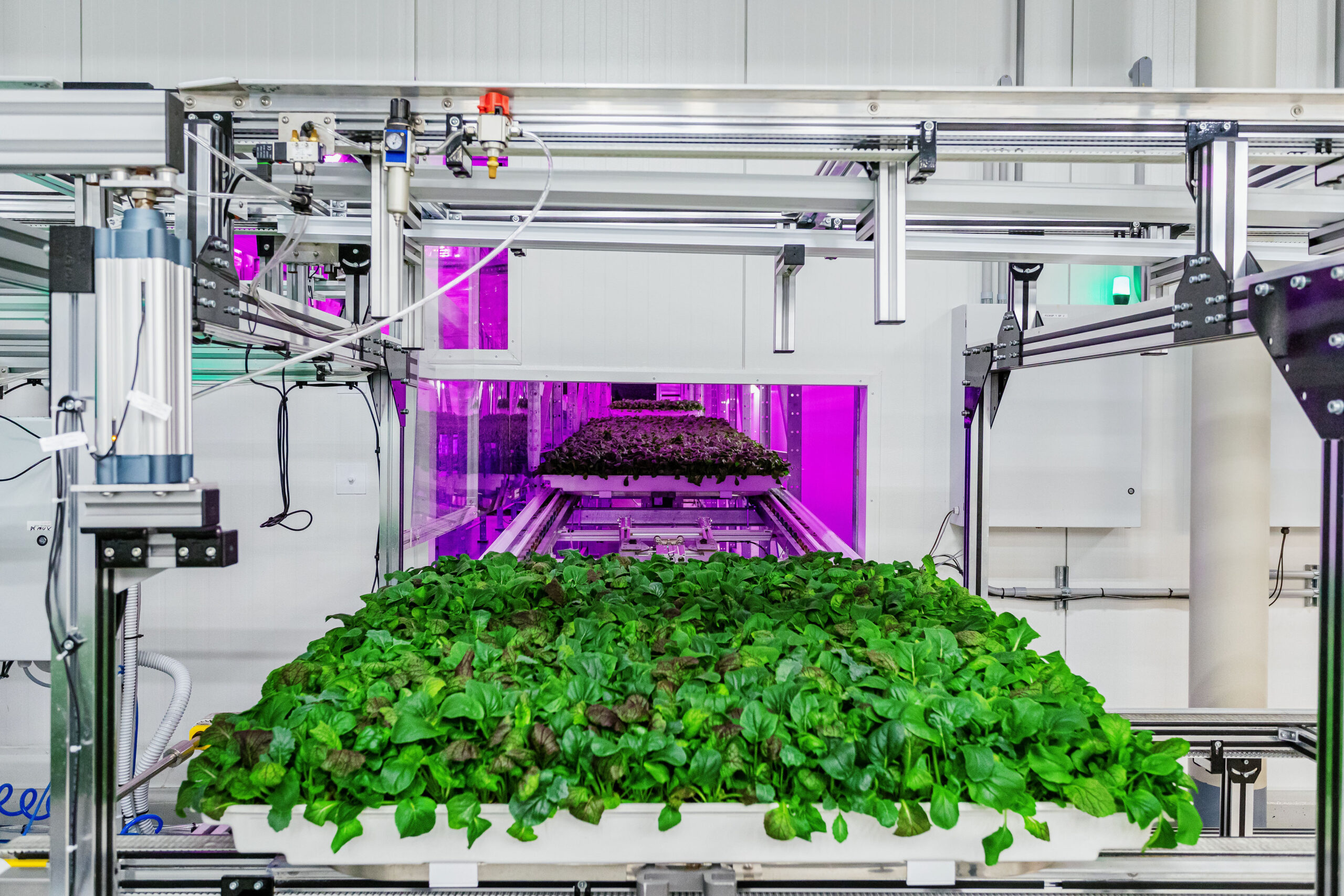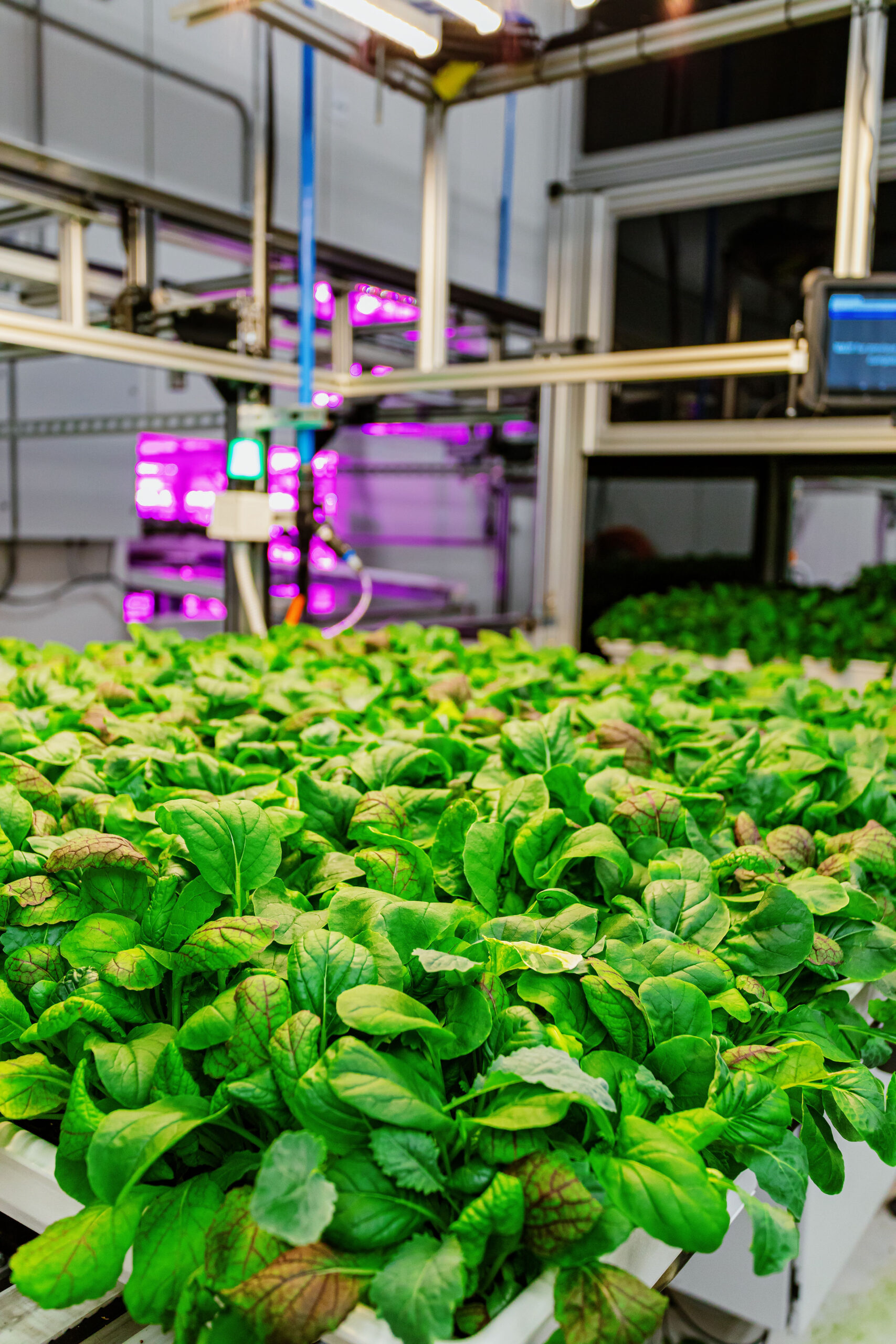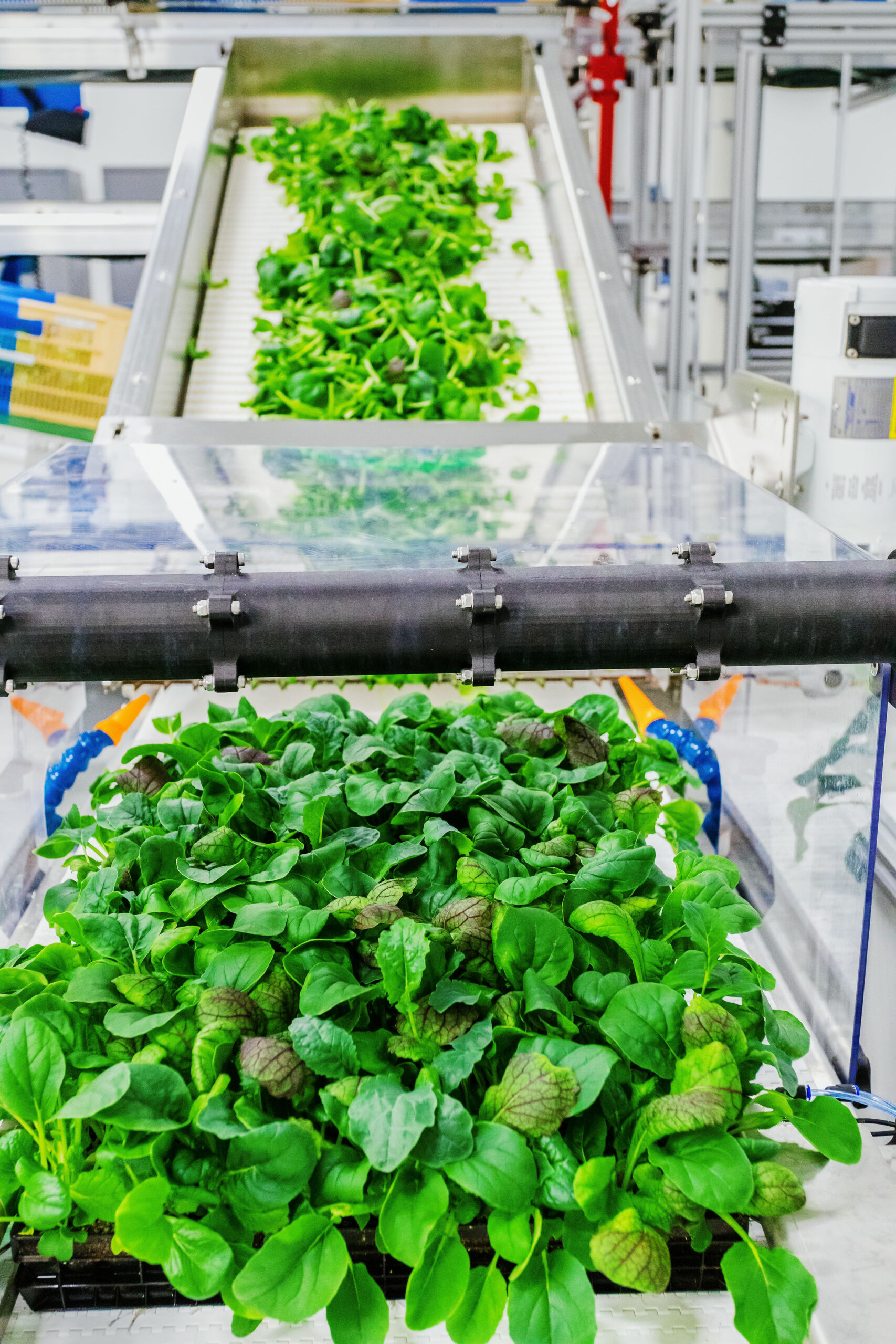
From an Old Factory in Braddock, Fifth Season’s Vertically-Grown Greens Are Sold in More Than 1,000 Stores
by Michael Machosky
March 24, 2022
If you watch a Penguins game on TV, you may notice a curious name on the ice that’s not as well-known as the giant car companies that usually take up that space. That’s Fifth Season. It’s a Pittsburgh startup that’s grown exponentially over the past few years by growing their delicious greens (yes, I can vouch for this) entirely inside an old factory in Braddock, next to the massive, fire-spewing Edgar Thompson Steel Works that still dominates the struggling city’s skyline.
“The Penguins are a household name here,” explains Fifth Season CEO and co-founder Austin Webb. “They’re beloved and we’re fans as well. In getting our name out there, more people can know about and try our product. The players actually eat our greens as well, to fuel them for the games.”
The company is growing quickly from its startup roots at Carnegie Mellon. They now have three blends of greens for purchase, and seven ready-to-eat salad kits (like a Toasted Tuscan salad with crunchy bagel chips and sun-dried tomatoes), including two salads featuring Sabra brand hummus and guacamole. You can order them online in the Pittsburgh area and they’ll deliver to your door, or find them in over 1,000 Giant Eagle, and now Kroger and ShopRite stores.
“Just a few weeks ago we were in 500 locations,” says Webb “So we doubled the locations, basically, in the month of March.”
Working with Cincinnati-based Kroger is big — they’re the country’s largest grocer by revenue. So, Fifth Season is also working on expanding its Ohio presence with plans for a new grow facility, three times the size of the one in Braddock, at 180,000 square feet, in Columbus.
Fifth Season also opened a new office in the Highline on the South Side of Pittsburgh. Itself a reuse of a massive complex of 100-year-old brick warehouses.
Fifth Season is working on a new robotic-assisted, vertically-grown technology for agriculture, that will help them #InvestInOurPlanet — helping feed a world whose food supply will be disrupted by the effects of climate change in the near future.
They do this in several ways.
“We're able to grow a lot more with less,” says Webb. “We use up to 95% less water than traditional field agriculture because we're able to have direct application of nutrient-rich water to the roots…We also are able to recirculate and reuse our water so any water that's not taken up by the plants in the roots -— we're able to reuse that water. We re-treat it, do nutrient-recovery dosing and then send that back to the plants when they're ready for it.”
They also recapture water from the humidity in the air. Every plant’s needs are attended to by robots.
“We use 97% less land than traditional agriculture because we stack (plants) vertically,” says Webb. “Braddock is a 60,000-square-foot facility; that’s one and a half acres. Because we have less waste, less seasonality — we create the perfect environment — you're going to have generally better yields. Sometimes, we grow plants faster than you could outdoors if you have variable weather. When you put each of those together, we're able to do you know, over 100 times, in some cases eventually 200 times, what you could do on the same 2-D-square-foot basis (using traditional farming methods).”
They also have no need for herbicides or pesticides and create no agricultural runoff, of the type that creates “dead zones” in waterways.
Despite the expansions in Columbus and the South Side, Fifth Season remains committed to its hometown in Braddock.
“We’ve donated over 12,000 pounds of food to 412 Food Rescue and the Braddock Free store,” says Webb. “Braddock is kind of a food desert.”
They have more than 80 employees so far — doubling in the past year — and expect to add more this year.




Leave A Comment